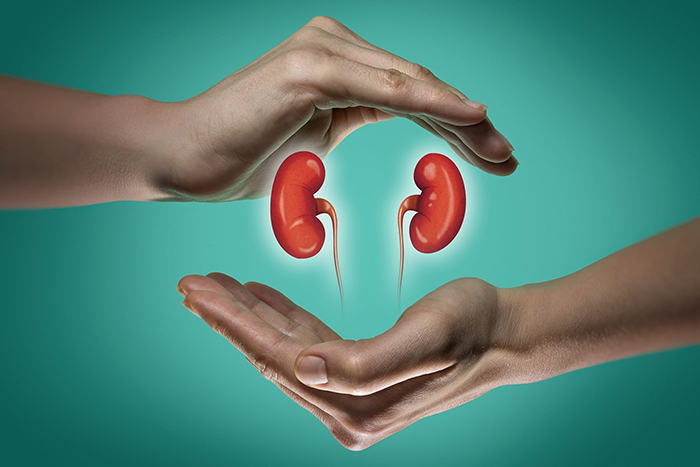The kidneys are small but mighty organs, and they have a big job of filtering 200 quarts of blood, and about two quarts of waste and water every day.
When your kidneys aren’t working as well as they should – because of a chronic disease or acute illness – it’s difficult to remove waste and fluids, and dangerous toxins begin to build up into your body. Chronic kidney disease, which affects more than 30 million Americans, can also put you at higher risk for serious issues, including heart attack and stroke.
What Is End-Stage Renal Disease?
Kidney failure is known as end-stage renal disease (ESRD) because it’s the last stage of chronic kidney disease. This means that one or both of your kidneys no longer function on their own.
ESRD can be very scary for patients and their families. Fortunately, today’s advances in medicine are delivering better treatments and outcomes for individuals with ESRD. The two most common treatment options are dialysis and kidney transplant.
Dialysis
Dialysis is a life-saving treatment process that helps the body remove waste and water from the blood. A machine does the work of your kidneys, prevents salt and water buildup, controls blood pressure, and maintains the minerals your body needs in the bloodstream. Dialysis is an on-going treatment. There are two main types of dialysis: hemodialysis and peritoneal dialysis.
Hemodialysis
During hemodialysis, blood is passed from the body through a set of tubes to a special filter called a dialyzer. Once the blood passes through the filter, the cleansed blood is returned to the body through another set of tubes. Hemodialysis treatments are usually administered three times per week as an outpatient at a dialysis center. Each session can last from two to four hours.
Peritoneal Dialysis
Peritoneal dialysis uses the lining of your stomach to filter blood. A sterile solution (dialysate) with minerals and glucose runs through a tube into the peritoneal cavity (the space between the abdominal walls). This cleansing fluid stays in the peritoneal cavity for a few hours to absorb waste products and fluids from your body. Then, it is drained out by a tube and into a separate bag. This process is done several times through out each day.
There are two types of peritoneal dialysis: continuous cycling peritoneal dialysis (CCPD) and continuous ambulatory peritoneal dialysis (CAPD). Your doctor will help you decide which approach is best, and both types of peritoneal dialysis are done at home.




